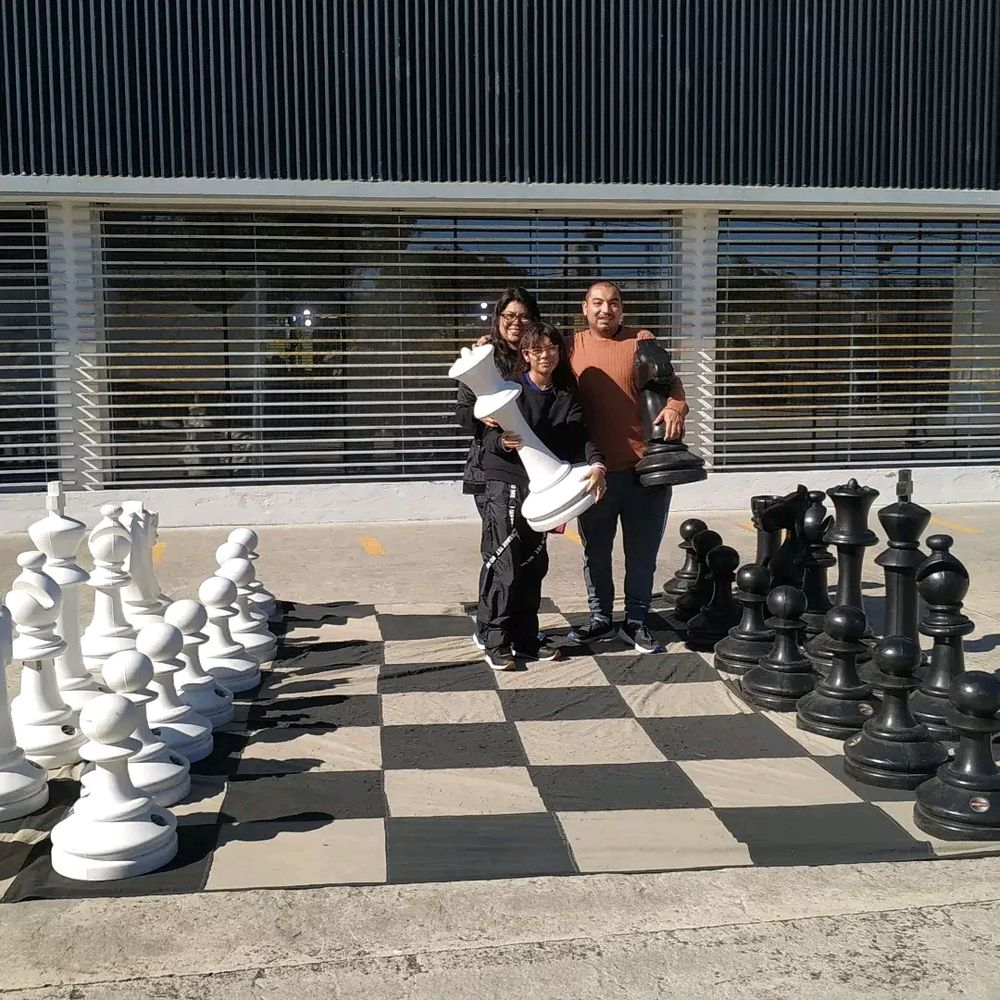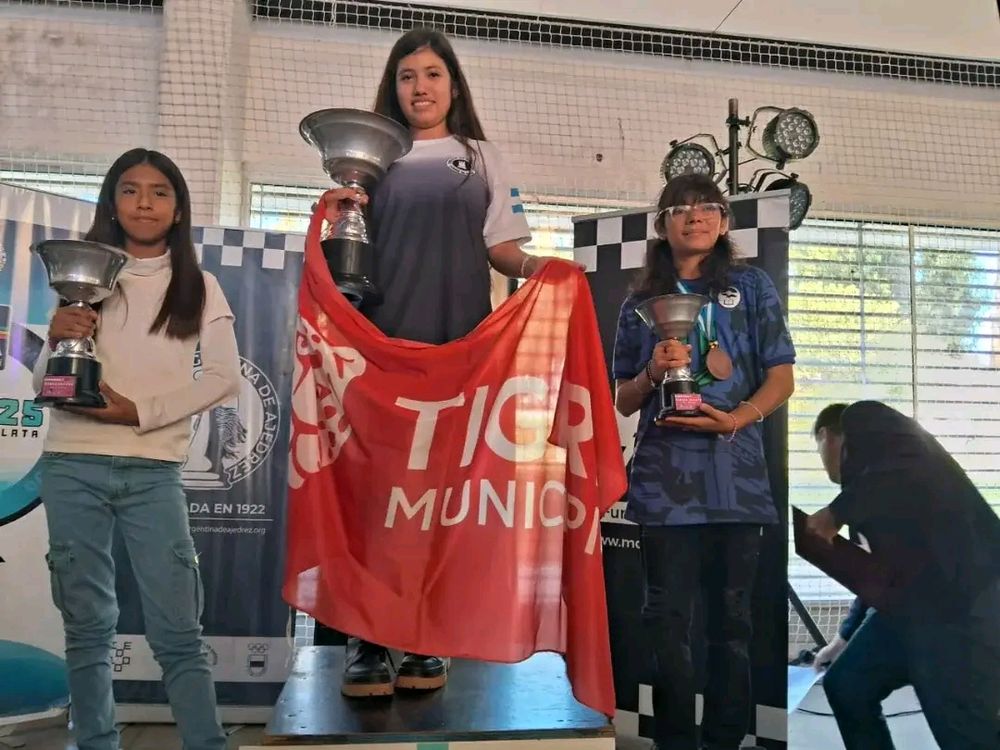Kidora Muñoz, the champion who teaches chess to other children

The pieces began moving on the dining room table long before Kidora Muñoz, now 11, knew what checkmate was. She was barely eight when she decided that chess wouldn't just be an occasional game with her father, Juan Manuel, but the center of her mornings. Between open books, online games, and notes with arrows and numbers, she built a routine that few children could sustain: two and a half hours of daily training before going to school .
That effort took her to Mar del Plata this year, where she faced off against nearly twenty rivals in the national under-12 championship . She returned with a third-place finish in the girls' category and, above all, an unexpected distinction: she was one of four girls chosen—out of 370 participants—to receive the special mention for "fair play," a recognition of respect and courtesy toward the board and her opponents.
“Today, it's appreciated that kids sit down, look each other in the eye, and shake hands before playing. It's not as obvious as it seems: in competitions, there can be mistreatment or unsportsmanlike behavior. This award seeks to encourage camaraderie and play without cheating,” explains Juan Manuel, who has also played chess since his teens and showed his daughter the way.
Kidora's childhood also included karate and keyboarding, but chess gradually gained ground until it eventually displaced them all . She placed first in the provincial championship held last year and also leads the women's circuit of the Prix in Mendoza, a monthly tournament that brings together players of all ages. She represents the UNCuyo club with professor Emil Zuvich and also trains with Cristian Acosta, a Mendoza native living in Mar del Plata who gives her online classes.
At home, their mother, Eliana Mareño, took up chess almost by osmosis since she met her husband, and now chess is a three-player affair. “We use the internet a lot: platforms like chess.com or YouTube videos. We hardly touch books,” says their father.
kidora with her parents

The tournaments also gave Kidora friends, one of the things she values most when speaking to Los Andes: “I like making my opponent a little nervous,” she says playfully, “but what I like most about chess is making friends. I'm friends with Emilia, from Rivadavia; Guadalupe and Sofi, from Mendoza.” To top it all off, this year she became good friends with Mía Álvarez, from Buenos Aires, the 2025 Argentine champion at the competition held in Mar del Plata.
But not everything was always harmonious in the chess competitions "Kido" attended: "I've had them get angry sometimes and throw pieces when I've won a match. Not with girls, but it has happened with boys," the champion recalls.
Her father recalls that, at first, when Kidora won, some people were upset because, on top of being small, she was a girl, not a boy. “Before, there was this whole 'how can a woman beat you?' thing. There's a bit of a sexist bias in this game, but hey… with her results, she's earned respect locally,” he says, with unconcealed pride.
The board and the streetCompetitive chess demands hours of concentration and entire weekends of tournament time. “It’s a very mentally demanding sport. You end up exhausted,” Juan Manuel admits. So the family began to slow down the demanding pace to make room for other games.
“We live in a semi-rural neighborhood, where the kids like to play in the dirt, ride bikes, and kick a ball. We didn't go out as much before; now Kidora joins them and also teaches them chess,” she says. The girl celebrates this change: “Now I have more fun. We play tag, I also run, and I ride my bike. And in the neighborhood, they learn about kings, queens, and bishops, and it's Kidora's parents who open their doors—and their chessboards—to spread the word about this sport.”
kidora national championship

In fact, this week, Kidora made her debut as a "teacher" in her own school: "The principal asked me to teach the fourth-grade students how to move the pieces," she says. It was a basic lesson for Kidora, but a real challenge for the little champion. "It was nice, although some of them didn't pay attention to me. There was one younger boy who did listen to me and asked a lot of questions," she says, guessing who might be one of her future successors.
Dreams and giftsDespite her medals and accolades as a chess player, Kidora wants to be a chemical engineer when she grows up . Not an astronaut, singer, actress, or YouTuber. Her father showed her one day what engineers do in that field, and she finds the idea of mixing elements "fun."
So, between home experiments and black-and-white tournaments, this Children's Day, Kidora received him with a gift he had especially requested: a ball to play soccer with his neighborhood friends. Back at home, the wooden box with the pieces coexists with a new ball, ready to roll on the street. Because Kidora is, all at once, a champion, student, friend, and neighbor. And although she knows that a well-executed checkmate is a real joy, she senses that "kicking the board" from time to time is also similar to happiness.
losandes




